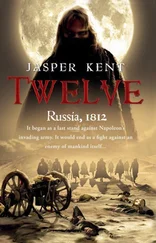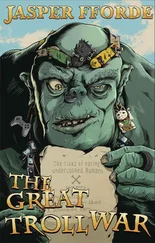Ward - Jasper Lyle
Здесь есть возможность читать онлайн «Ward - Jasper Lyle» — ознакомительный отрывок электронной книги совершенно бесплатно, а после прочтения отрывка купить полную версию. В некоторых случаях можно слушать аудио, скачать через торрент в формате fb2 и присутствует краткое содержание. Жанр: foreign_prose, foreign_antique, на английском языке. Описание произведения, (предисловие) а так же отзывы посетителей доступны на портале библиотеки ЛибКат.
- Название:Jasper Lyle
- Автор:
- Жанр:
- Год:неизвестен
- ISBN:нет данных
- Рейтинг книги:5 / 5. Голосов: 1
-
Избранное:Добавить в избранное
- Отзывы:
-
Ваша оценка:
- 100
- 1
- 2
- 3
- 4
- 5
Jasper Lyle: краткое содержание, описание и аннотация
Предлагаем к чтению аннотацию, описание, краткое содержание или предисловие (зависит от того, что написал сам автор книги «Jasper Lyle»). Если вы не нашли необходимую информацию о книге — напишите в комментариях, мы постараемся отыскать её.
Jasper Lyle — читать онлайн ознакомительный отрывок
Ниже представлен текст книги, разбитый по страницам. Система сохранения места последней прочитанной страницы, позволяет с удобством читать онлайн бесплатно книгу «Jasper Lyle», без необходимости каждый раз заново искать на чём Вы остановились. Поставьте закладку, и сможете в любой момент перейти на страницу, на которой закончили чтение.
Интервал:
Закладка:
In these halting-places all slept through the golden hours of noon, the women at a prescribed distance. There had been five at first starting, and the party had been increased by three more joining them in a kloof, almost impassable from the density of the bush. Zwartz lay like a guardian in the centre of his female friends; they petted and talked to him at times, calling him all manner of endearing names, but Amayeka was his best friend; and Gray, sorrowful and restless, reclined always within arm’s length of the wary Lee.
The latter was the first stirring. It was a sultry afternoon on the first day’s march, and Lee took from the haversack the paper Brennard had slipped into it at the Witches’ Krantz. The paragraph I have alluded to was as follows:
“We regret to learn that the indisposition of our governor, Sir Marmaduke Faulkner, still detains him in England, and that General Sir John Manvers has been requested to take command of the frontier forces at this critical period, when it is pretty well understood, by such as choose to open their eyes to the fact, that the Kafirs are rife for war, and that the Boers to the eastward are only waiting a favourable opportunity to proclaim their disaffection. Sir John may be daily expected from Cape Town.”
“So,” said Lee, his chest heaving, his eye dilating, “ he is here! Well, there will come a day when we shall stand face to face, openly, as foes; I may fail of success, I may be beaten for want of a regular force, but I may be revenged—revenged;” and the tone in which he uttered this aroused the sleeping deserter.
Lee held a parley with Gray, but did not enlighten him fully on the subject of his enmity to the man who would soon be first in authority over the wide territory through which they were roaming. He gave him to understand, however, that his final object was not to join a tribe of savages in a fight against his countrymen; once well on the north-eastward, there would be no difficulty in proceeding by degrees to those settlements where many Dutch farmers lay bivouacked, with all their poor household and farm property about them.
The character Lee had assumed for himself and friend was one which quite suited his disposition, and would greatly facilitate his movements; the Kafirs would welcome him as a trader, and pass him safely on as such; while the Dutch would receive him as a confederate, and hail with satisfaction so able an assistant as Gray, a deserter from the Royal Artillery.
Night fell. The Kafir girls re-adjusted Zwartz’s burden; they frequently lightened it by carrying skins of gunpowder on their heads, which they did with perfect ease and grace, and Amayeka, uttering the simple warning, “It is time,” passed on, lingered on the hill-side to point out the smoothest cattle-tracks to Gray, who, as his limbs recovered their elasticity, tried to reconcile himself to his fate by admitting the pleasant influence which the glittering eyes and brilliant smile of Amayeka shed on his moody moments.
Having passed through many intricate defiles and glens of indescribable beauty, they emerged, in about a fortnight from the first night march, upon a more open country. These plains were dotted with kraals, from each of which some “Great man” came forth; Amayeka acted as interpreter. A day was fixed for meeting in a secret spot, where a due exchange of goods was to be made. The wagons sent by the agent from the Gonube were already, with hides and horns, waiting there, and these were to be despatched by trusty convoy to the Witches’ Krantz; Doda, the great councillor or the principal chief, firmly believing that unless the tribes kept to their agreement with Brennard, the latter would withhold the supplies and betray the storehouses, or rather storehuts, which held the arms and ammunition of Kafirland.
A stronger would not have distinguished these huts from others of the hamlet, but day and night three dusky guards kept watch and ward around than, for fear of treachery or fire. These guards wove baskets, or shaped out bullet-moulds, or bound the assegai blades to the slender shafts; they did anything apparently but keep sentry over the domicile they so cautiously protected.
On the twelfth day of the journey, having headed the Imkwali river and traversed a plain, our travellers suddenly dipped between two hills, and on ascending the last, found themselves in front of an amphitheatre, over which Umlala’s kraal and pasture-lands were spread. It was the chief residence of Umlala and his hemraaden , or councillors.
Behind this green space rose a range of purple heights; nearer to it, and sheltering the village from the north, was a chain of low hills, and the sides of these were dotted with thousands of beautiful cattle. The whole population of this territory was astir. Over one slope a hunting-party wound its way, below were children riding races on the backs of oxen, far too sleek for such an exertion; girls were laughing and talking together under the noble groups of trees, but the great mass of Kafirs had gathered in a crowd in an angle of the kraal. Amayeka, on perceiving this, bid the convoy await till her father should be sent for.
Doda came, he having, as I have shown, already held communication with Lee on the road, and he now invited him to the front of his hut until Umlala should be ready to receive him. Ere long, a summons arrived, and Lee proceeded to a conference with Umlala.
The chief was seated on the ground, surrounded by several of his hemraaden. The subject of conversation had for many days touched upon the preparations for war, which, for months had been secretly progressing in Kafirland; and the intelligence which Amayeka brought, and which Lee confirmed, was soon conveyed by Doda: he told Umlala that the white men were making ready for battle. Even now, it was said, the white chiefs were beginning to count their red men by tens, for they were many.
No immediate or noisy demonstration followed this announcement. Umlala sat, to all appearance, in deep thought, Doda waiting at his right hand till it should please his chief to address him.
At last, having matured his thought, Umlala said, in a low and distinct voice,
“Amakosa noburoti bona”—“The Amakosa are brave.”
The crowd testified their satisfaction by a murmur of assent that rolled through the assembly like the swell of an ocean wave.
“Our chief is wise,” said Doda; “without him we are as the land in drought—as a bundle of sticks scattered for want of a cord—as people journeying on vast plains without a purpose, without landmarks. It is he who leads us from dark places, and sets our feet on open ground—we are his children—hear him.”
“Umlala,” answered Amani, “is my mouth, let him speak.”
“Our ears are open,” said Doda, and sat down with an uneasy glance at Amani.
For Doda was peacefully inclined—that is to say, though war was in his heart, he had tasted of the blessings of civilisation. He had seen his daughter, “sitting in the sun and eating honey,” living under virtuous influences, in peace and plenty, at the mission station, and it was with inward reluctance that he had obeyed his chief in withdrawing her from thence. It would have been useless, as well as impolitic, to oppose his sentiments openly to Umlala’s inclinations, especially as of late the malcontent Dutch had been tampering with the chiefs, and some mercenary and unprincipled traders had profited by the aspect of affairs to increase their traffic.
Amani rose. He was the rain-maker, or witch doctor, of the tribe—one of those wicked magicians of the country, who, taking advantage of the Kafir belief in evil agency, manage, with extraordinary tact, to turn the very changes of the elements to bad account. By his cunning and audacity, he had made such predictions and revelations as had obtained for him paramount ascendancy over his chief, and consequently the whole tribe. Doda both despised and dreaded him. He had missed him lately for several days. Amani was supposed to be in the retirement of the hills, preparing charms and incantations for the ceremony they had assembled to witness, the induction of the young warriors into their calling. But Doda, who had his scouts ever on the watch, felt sure that the wizard had made a hurried march to some secret place of meeting with Brennard, who would have given him the last colonial news; and, armed with this, he could easily forestall Amayeka and her white confederates, since Amani could travel faster and by nearer paths than they could traverse in a body, and with Zwartz, encumbered with their contraband stores.
Читать дальшеИнтервал:
Закладка:
Похожие книги на «Jasper Lyle»
Представляем Вашему вниманию похожие книги на «Jasper Lyle» списком для выбора. Мы отобрали схожую по названию и смыслу литературу в надежде предоставить читателям больше вариантов отыскать новые, интересные, ещё непрочитанные произведения.
Обсуждение, отзывы о книге «Jasper Lyle» и просто собственные мнения читателей. Оставьте ваши комментарии, напишите, что Вы думаете о произведении, его смысле или главных героях. Укажите что конкретно понравилось, а что нет, и почему Вы так считаете.












